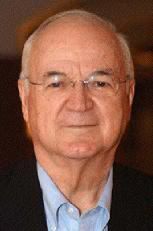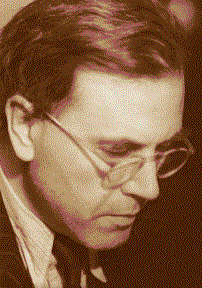An example is worth many words. In this case, two examples, with a common theme, to illustrate both intellectual pride and intellectual humility.
 After 40 years, it continues to become more painfully clear that Pope Paul VI's encyclical Humanae Vitae was indeed prophetic. The widespread acceptance of artificial contraception has led to legalized abortion, the breakdown of marriage, sexual license, and a host of other ills that currently plague our society, all of which were warned against by Paul VI. Moreover, both John-Paul II and Benedict XVI have reaffirmed the validity of this papal encyclical, and much harm has come from ignoring it.
After 40 years, it continues to become more painfully clear that Pope Paul VI's encyclical Humanae Vitae was indeed prophetic. The widespread acceptance of artificial contraception has led to legalized abortion, the breakdown of marriage, sexual license, and a host of other ills that currently plague our society, all of which were warned against by Paul VI. Moreover, both John-Paul II and Benedict XVI have reaffirmed the validity of this papal encyclical, and much harm has come from ignoring it.
 In his July 21, 2008 column entitled "Humanae vitae: After Forty Years", Fr. Richard McBrien was pleased to quote Cardinal Basil Hume, Archbishop John Quinn, and Jesuit Richard McCormick. Much more extensively, McBrien quoted some of his own previous columns to emphasize that he himself was one of the first and most consistent questioners of Humanae Vitae. He is apparently pleased with his own "foresight" in countering the Church's teaching on contraception. Within one of these self-quotes, McBrien quotes Pope Paul VI as welcoming "the lively debate aroused by our encyclical". He did not quote John-Paul II or Benedict XVI. [3]
In his July 21, 2008 column entitled "Humanae vitae: After Forty Years", Fr. Richard McBrien was pleased to quote Cardinal Basil Hume, Archbishop John Quinn, and Jesuit Richard McCormick. Much more extensively, McBrien quoted some of his own previous columns to emphasize that he himself was one of the first and most consistent questioners of Humanae Vitae. He is apparently pleased with his own "foresight" in countering the Church's teaching on contraception. Within one of these self-quotes, McBrien quotes Pope Paul VI as welcoming "the lively debate aroused by our encyclical". He did not quote John-Paul II or Benedict XVI. [3]
 As a catechumen coming into the Catholic Church in the 1920's, a young Dietrich von Hildebrand likewise asked why birth control should be considered immoral. When told that he must accept the Church's teaching authority, he immediately replied, "Credo ut intelligam" - "I believe in order to understand." Such remarkable humility reflects a childlike faith, not in one's own insight, but in the Church. That, though composed of sinners and always in need of reform, she is God's holy ark of salvation, and can be trusted to teach the truth.
As a catechumen coming into the Catholic Church in the 1920's, a young Dietrich von Hildebrand likewise asked why birth control should be considered immoral. When told that he must accept the Church's teaching authority, he immediately replied, "Credo ut intelligam" - "I believe in order to understand." Such remarkable humility reflects a childlike faith, not in one's own insight, but in the Church. That, though composed of sinners and always in need of reform, she is God's holy ark of salvation, and can be trusted to teach the truth.
This young philosopher eventually became a modern doctor of the Church, noted especially for his brilliant contributions to doctrines on marriage and sexuality, and was among the first to defend Humanae Vitae in 1968. His widow Alice continues to speak and write on these themes today. Cardinal Joseph Ratzinger wrote of von Hildebrand:
I am personally convinced that, when, at some time in the future, the intellectual history of the Catholic Church in the twentieth century is written, the name of Dietrich von Hildebrand will be most prominent among the figures of our time.
This illustrates, I believe, the wonderful irony that intellectual humility is the door leading to true intellectual prowess, being unimpeded by the shackles and distortions of ego and error.
Note 3: Fr. McBrien's website does not permit me to link directly to the "Humanae vitae: After Forty Years" article, but you may go to richardmcbrien.com and navigate to it.





8 comments:
Thanks for the plug Jerry. I have discerned nothing but humility from your Blog posts. Humility is simply truth. Seeing ourselves as we are. With all our strengths and weaknesses. Your Blog posts reveal much about you. Your posts are informative, clear and concise. There isn't the slightest trace of arrogance or smug self-righteousness. You manage to be "down-to-earth" [and I mean this in the complimentary sense] while writing posts which are heavy on substance.
In short, you are a Catholic gentleman. And I am happy that I discovered your Blog.
God love you.
P.S. Alice Von Hildebrand is a friend. I have studied Dietrich's writings for many years. A brilliant man, Pope Pius XII described him as the "20th century doctor of the Church."
Alice told me I should study German so that I might fully appreciate his work - much being "lost in translation." I'll add that to my plate...so much to read and study, so little time! Life is too short Jerry.
Often when I'm reading Dietrich, my eyes fill up with tears. This because of his incredible capacity to distill the most profound ideas into the most simple terms.
If you pick up Transformation in Christ, you won't be able to put it down. If you do read this classic on the spiritual life (which I compare to a modern-day Imitation of Christ by Kempis), you will marvel at the pervading sense of a calm spirituality. All the more amazing since Dietrich wrote the book while on the run from the Nazis who were attempting to kill him. They were in fact so close that he only narrowly escaped his home with only about two minutes to spare.
Fr. Richard P. McBrien has really created a legacy of shame for himself. Whenever the secular media do a story on the Church, it seems they roll out Fr. McBrien to hurl his usual complaints and half-truths.
Poor Fr. McBrien. Inwardly, he knows he has lost, he just doesn't possess the moral courage and intellectual honesty to steel himself to admit it.
And so he routinely complains about the "John Paul II generation of priests," referring to them as "clones" of the late great Pontiff.
Not that the accusation is true but how is that a bad thing?
Jonathan: I pray that your description of Fr. McBrien is accurate, that he inwardly knows that his is a failed ideology, which could mean he is close to repentance. In the post entitled "A repentant hippy", I describe my own gut-wrenching experience along those lines.
Paul: Thank you for more kind words, and thanks for another book recommendation. Yes, there is too little time (sigh). Perhaps, if I am admitted to eternal life, one of the joys will be good books without end!
Do I understand you to say that you know Alice von Hildebrand personally? (!!) The story of Dietrich as a young convert was taken from an article by Alice in the most recent issue of homiletic & pastoral review. I like the "Credo ut intelligam" quote so much that, as you see, I've now made it the title of this post.
Jerry, I do. And she is as warm and approachable as she is brilliant. I had her sign my copies of Transformation in Christ and Soul of a Lion (biography of her husband). Off to Holy Mass, thought I would check emails and the blogs I link to.
Have a blessed day!
Here's the full quote, which Dietrich apparently knew:
"Neque enim quaero intelligere ut credam, sed credo ut intelligam. Nam et hoc credo, quia, nisi credidero, non intelligam." ("Nor do I seek to understand that I may believe, but I believe that I may understand. For this, too, I believe, that, unless I first believe, I shall not understand.")
- St. Anselm of Canterbury
Faith seeking understanding. Amen to that!
I never hear anything about NFP at my parish. Why is that? Since artificial birth control is condemned by the Church, why don't we hear more about the Christian alternative?
Do your parish's marriage prep courses touch on NFP? If so, is NFP presented as the Catholic version of contraception, or are the true precepts behind Humanae Vitae being taught?
It would not be inappropriate to ask these questions of your pastor. Sometimes an interested parishioner will motivate or encourage a pastor to break the silence.
Post a Comment